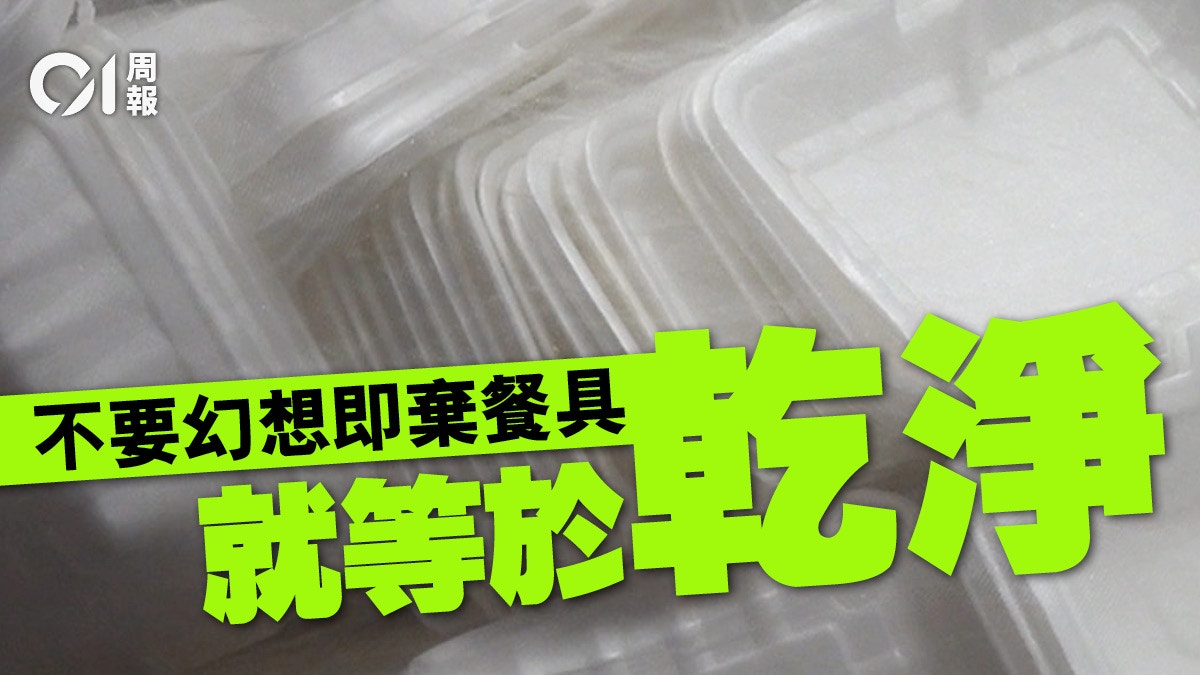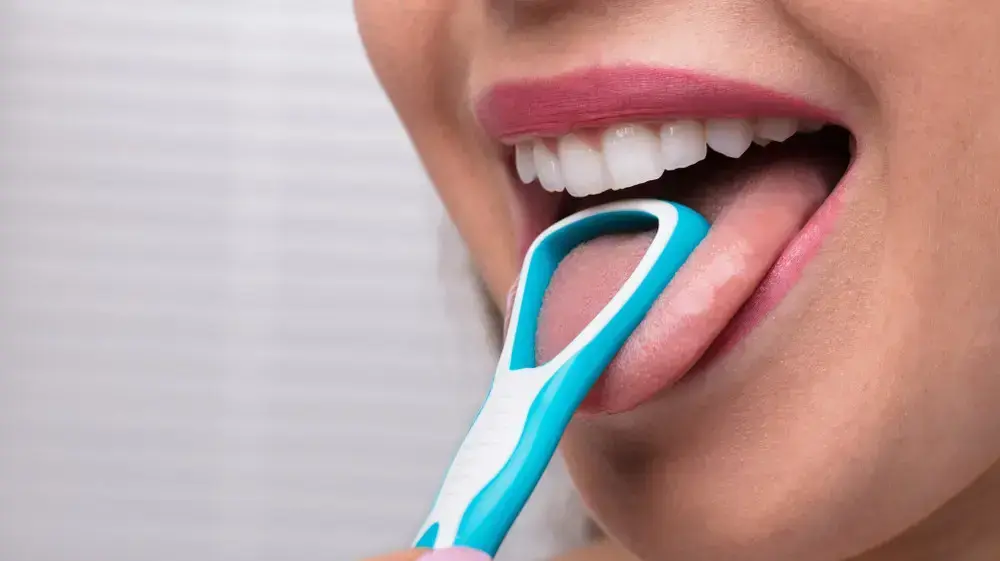weekly
Written by: Wu Zhenzhong
2020-07-01 13:30
Last update date: 2020-07-01 13:30The draft garbage levy draft proposed by Hong Kong two years ago was still dead in the womb. Furthermore, during the epidemic, everyone called takeout and produced a large amount of disposable tableware. The society should really reflect on whether it has done enough to reduce waste at the source. An environmental group in Hong Kong has launched the takeaway "walking plastic" operation to warn the public not to lose sight of this and stick to the myth of "cleanliness" and "hygiene first", making the environment a victim.
To undertake the above: "Hygiene first" under the epidemic, environmental protection can only give way?
When I arrived at the old Feng Cha House in Yuen Long, the decoration of the old public house caught my eye and was first attracted by the poster of "anti-epidemic + absolute glue" posted outside the store. This restaurant that specializes in nostalgic dim sum is very environmentally conscious. When guests ask for takeaway packaging, employees will actively ask: "It is better to use a lunch box to hold?" Most diners are happy to pack all food in the same lunch box. Although, occasionally, some diners still ask: "Set it apart."
"Employees are newcomers, I will remind them to actively ask customers if they can reduce the number of meal boxes and drinking tubes? When diners call to place an order, they will actively ask whether they will bring their own meal boxes or "walking tableware"?" Lao Fengcha Ms. Yu, the person in charge of the residence, mentioned that diners were encouraged to bring their own lunch boxes more than a year ago, and use less disposable tableware.
During the epidemic, Lao Feng Chaju's "walking plastic" plan has an additional group of peers: these restaurants are all participating merchants of the Green Collar Action in the Yuen Long District to implement the "Jiaojiao Economic Circle".
The "Jiaojiao Economic Circle" subsidized 15 restaurants, and each restaurant could receive a maximum subsidy of 1,000 yuan. As long as the diners take out 30 yuan for takeout, you can save 5 yuan by bringing your own food container and not asking for any disposable tableware. The restaurant provides discounts for diners who are willing to "walk away", thereby raising public awareness of environmental protection.
Lao Feng Cha Ju, a restaurant that specializes in nostalgic dim sum, is very environmentally conscious. When guests ask for takeaway packaging, employees will take the initiative to use fewer plastic lunch boxes. (Photo by Wu Zhenzhong)
Reducing business costs is both environmentally friendly and saves money
According to the questionnaire survey of "Hong Kong people buying disposable plastics consumed by takeaways" published by the Green Collar Action in April, it is estimated that the people of Hong Kong consume more than 100 million pieces of disposable plastics including plastic drink tubes, plastic tableware, Discard plastic food utensils and takeaway plastic bags. Moreover, before the outbreak, Hong Kong people took out about 13.5 million take-outs a week, and during the outbreak, they took out 21.1 million times, a significant increase of 56%. In terms of takeaways, Hong Kong people bought about 27.1 million takeaways each week before the outbreak, and about 47.1 million copies during the outbreak, an increase of more than 70%.
According to statistics from the Green Collar Action, the Tapas snacks in Yuen Long District are the best-performing restaurants in the "Glue-Free Economic Circle", with the most diners bringing their own lunch boxes.
Andrew, the owner of Bata Snacks, said that restaurants always only take out food and do not have dine-in food. During the epidemic, there were more customers, especially after the government issued a "restriction order". "Some customers have specifically participated in the support after knowing the action of "Jiaojiao" and said that they don’t need to give back. I will tell them that the most important thing is to tell more friends about this plan." He also said that there were people who lived on Hong Kong Island specially Come to patronize, he was very moved.
Bata Snacks is the best-performing restaurant in the "Glue-Free Economic Circle". (Provided by the interviewee)
"People who come to a snack shop can buy food for $30 or $40, because they can cut their own lunch boxes by $5, which is very cost-effective, and they can develop environmental protection habits, and they can do both." In addition, some diners feel that people who are willing to participate in the activities will not really care about those three dollars and five dollars, simply because the activities are meaningful.
Ms. Yu of Lao Feng Chaju also pointed out, "In the beginning when the four-person restriction order was implemented, many more people really came to buy takeaways." She believes that the "walking plastic" action can also reduce operating costs in addition to promoting environmental protection. From an operational point of view, plastic packaging is also a cost and should be saved. "Think about it, if the diners order a takeaway, we will have chopsticks, spoons, plastic bags, etc. with the meal. These are the costs!"
Earlier in Hong Kong, the implementation of the polygamy order made few people choose to dine in restaurants. (Profile picture)
The set menu is diverse and difficult to practice
Although "plastic" can contribute to environmental protection and benefit from stores in terms of cost control, there are not too many restaurants willing to participate in the "rubber glue economic circle". Director of Green Collar Action He Hanwei said that the process of finding a cooperative store is not easy. The biggest reason is that many restaurants are difficult to completely "walk away". "For example, in a Western restaurant, the set menu includes potato dishes, salads, main courses, etc. If a customer wants to take out, it is difficult to ask him to bring so many lunch boxes."
Well, bazaars, which are light snacks, should be easy to "walk out of shape." However, Andrew also pointed out a lot of "plastic" problems. For example, not all foods can be put in diners’ own boxes. "We have a food that is omelet, because of the shape problem, it is difficult to put it in your own lunch box."
However, in order to support environmental protection, some diners can "do it all". Andrew remembers that after a diner bought a take-out omelet for the first time at a bazaar snack, he kept the large round plastic box provided by the shop. After that, every time he came to buy the omelet, he would prepare a clean plastic box. Although the plastic box is made of plastic, it can be used several times after cleaning, which is also a contribution to environmental protection.
Andrew, the owner of the Bata snack shop, pointed out that it is quite difficult for restaurants to completely "walk away". (Photo by Wu Zhenzhong)
In addition, some diners are very caring and take the initiative to bring their lunch boxes for takeaway, but because the lunch boxes are too small, they buy more snacks, and as a result the food cannot be packed. "Then there is no way, we have to provide disposable utensils." Although the "Peel-Free Economic Circle" activity has come to an end, and the "Walking" discount has ended, Andrew said that if there are similar activities in the future, he will continue to participate .
If the store wants to achieve a comprehensive "walking" or discount rebate for a long time, it will face many difficulties, because the operating cost must be considered. "The restaurant business has just started, and there are still containers made of non-renewable materials such as plastic and cork, but we are looking for some more environmentally friendly alternatives," Andrew said.
He Hanwei pointed out that even if restaurants are willing to contribute to environmental protection, based on hygiene considerations in the epidemic, many restaurants will take the initiative to provide disposable tableware such as plastic spoons, cork bowls, and wooden chopsticks in order to reassure diners. Under the premise of "hygiene first", it is difficult for restaurants and customers to "learn", so it is also very difficult to find cooperative restaurants in the "rubber economy circle".
Under the premise of "hygiene first", it is difficult for restaurants and customers to "learn". (Profile picture)
Eliminate prejudice and misunderstand environmental protection and health
The Green Collar Action explained that the new coronavirus is mainly transmitted through respiratory droplets. The health risk of take-out is contact with the diagnosed person, or indirect contact with the confirmed person's droplets in take-out utensils. Therefore, even if you use disposable tableware, it does not mean that you can stop the spread of the virus. Moreover, disposable tableware may be contaminated during manufacturing and shipping. Customers bring their own food utensils, but understand the source of tableware more clearly. If they are thoroughly cleaned, the hygienic effect is better.
Green Collar Action members suggested that restaurants can only provide disposable tableware when customers actively request it. Miss Yu also agreed that "walking" does not mean "unclean". Although the tableware used in Lao Feng's tea house is reusable tableware, after each use, the restaurant staff will wash it twice and provide hot water to the diners. Rinse the tableware and utensils on the spot.
Miss Yu agrees that "walking" does not mean "unclean", and the public should discard these hygienic errors. (Photo by Wu Zhenzhong)
As early as 2003 SARS, He Hanwei had already put into environmental protection work. He recalled that society had a similar sanitary fallacy at that time. At that time, because of the public health crisis, the awareness of anti-epidemic increased, and the society appeared to abandon environmental protection for health. Although under the epidemic, it is absolutely correct to pay attention to public health, but the lack of publicity in medical science has led to prejudice in the society about the concepts of "sanitation" and "cleanliness".
He Hanwei gave an example. In 2003, many schools and institutions switched to bottled hand sanitizers instead of environmentally friendly soap because of hygiene reasons.
He Hanwei believes that under the epidemic, it is absolutely correct to pay attention to public health, but due to insufficient publicity of medical science, the society has a prejudice against the concepts of "sanitation" and "cleanliness". (Getty Images)
"I strongly advocated the use of soap at that time, but many people were afraid of being unclean. This is a wrong concept. Soap cannot be a medium for breeding bacteria. The characteristic of soap is sterilization, how can it grow bacteria, and it is unhygienic and unclean. What about it?" He believes that public health is of course important, but the public does not need to overreact and even destroy the environment.
The epidemic intensified the "glue" disaster, which originated from the hygienic fallacy of disposable products. The idea behind the "rubber-free economic circle" is to hope that society can abandon misunderstandings and understand that environmental protection and public health are not in opposition, but can be parallel.
[Environmental protection design] Patagonia recycles discarded fishing nets to upgrade the brim to rebuild "green" hats
The above excerpt is from the 220th issue of "Hong Kong 01" weekly report (June 29, 2020) ""Public health first" brewing plastic disaster epidemic consumption mode hinders the road to environmental protection? ".
More weekly articles: [01 Weekly Page]
"Hong Kong 01" Weekly, available at major newsstands, OK convenience stores and Vango convenience stores. You can also subscribe to the weekly report here, or click here to preview the weekly e-newsletter to read more in-depth reports.
01 depth
Environmental Protection 01 Weekly Report New Crown PneumoniaNew Crown Pneumonia




/cloudfront-eu-central-1.images.arcpublishing.com/prisa/3I74UEXLYRBBRPGPSGWNN6WXH4.jpg)


